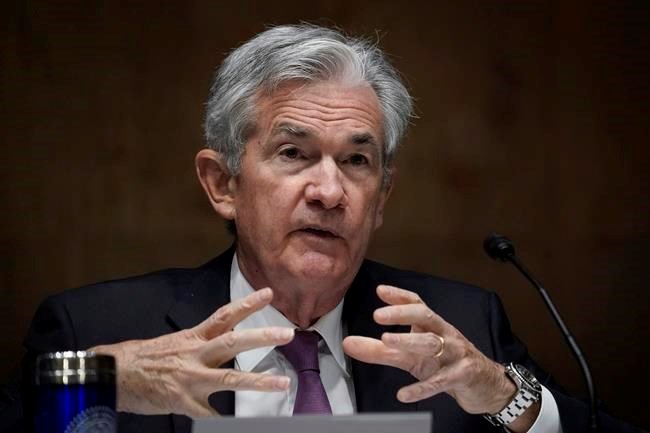WASHINGTON — Federal Reserve Chair Jerome Powell warned Tuesday that a tentative recovery from the pandemic recession could falter unless the federal government supplies additional economic support.
Yet hours after Powell's remarks, President Donald Trump announced that he was cutting off talks with Democrats over a new economic aid package until after the November elections. Trump's move would mean that millions of jobless Americans and struggling businesses and states will receive no further federal support for weeks, if not months, to come, just as the economy is struggling to recover from a deep recession.
Powell, in his speech, asserted that economic support from the government — including expanded unemployment insurance payments, direct payments to most U.S. households and financial support for small businesses — has so far prevented a recessionary “downward spiral” in which job losses would reduce spending, forcing businesses to cut even more jobs.
But the U.S. economy still faces threats, and without further aid, those downward trends could still derail the recovery, Powell said.
Trump, in his tweet, offered a far rosier view.
“Our economy is doing very well,” he tweeted. “The Stock Market is at record levels, JOBS and unemployment also coming back in record numbers.”
Trump's decision to abandon talks with Democrats, sent stock prices tumbling after they had risen earlier in the day. The S&P 500 index closed down a sharp 1.4%.
In his speech to the National Association for Business Economics, a group of corporate and academic economists, Powell said:
“The expansion is still far from complete. Too little support would lead to a weak recovery, creating unnecessary hardship for households and businesses. Over time, household insolvencies and business bankruptcies would rise, harming the productive capacity of the economy, and holding back wage growth.”
The chairman noted that the economic recovery has slowed in recent months compared with its rapid improvement in May and June. Incomes fell in August. And job growth weakened in September, slowing to just 661,000, less than half the gains of 1.5 million in August and 1.8 million in July. The economy has recovered only slightly more than half the 22 million jobs that were lost in March and April.
“A prolonged slowing in the pace of improvement over time could trigger typical recessionary dynamics, as weakness feeds on weakness,” he said.
During a question-and-answer session with economists, Powell noted that the pandemic recession has disproportionately harmed in-person service industries, especially restaurants, bars, hotels, travel companies, movie
“The right thing to do and the smart thing to do in the long run is to support those people as they return to their old jobs or find new jobs,” the chairman said.
In recent months, in speeches and in testimony to Congress, Powell has repeatedly urged lawmakers to enact an additional economic aid package. Fed chairs typically avoid inserting themselves into policy debates, but Powell has stressed that the Fed can only lend money to help spur growth.
Actual spending — further aid for small businesses, for example, or another round of stimulus checks for individual Americans — would have to come from Congress.
A $2 trillion financial rescue package that Congress approved in March, as well as previous aid measures, were “truly extraordinary," Powell said, enabling U.S. households to pay bills and maintain their spending even as unemployment soared to 14.7% in April.
Spending on autos and other long-lasting goods is actually higher now that before the pandemic, the Fed chair noted.
“Still, since it appears that many will undergo extended periods of unemployment, there is likely to be a need for further support,” Powell said.
Powell also acknowledged during the Q&A that women are increasingly being forced to quit jobs to oversee children who are engaged in online schooling. This trend poses a threat to their careers, he noted, and to the economy in the longer run.
“The longer it goes on, the more likely there is some lasting damage,” Powell said. "Someone told me the other day, there’s no online preschool. So for many people, and it’s a lot of women, it’s winding up being in the home with young children, who really should be in school, and you much prefer to be working, so it’s a real issue.”
In his prepared remarks, Powell also discussed the Fed's new framework for its interest rate policy but provided no new details about how it will work in practice. Last month, the Fed said it was now seeking to let inflation run above 2% “for some time" before considering higher short-term interest rates. That is a substantial shift from its previous approach, which potentially involved rate hikes once unemployment fell too low or inflation hit 2%.
Christopher Rugaber, The Associated Press



